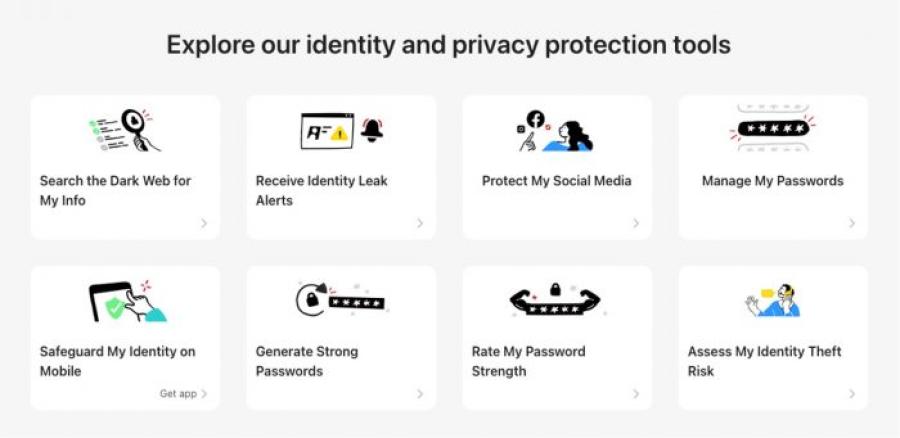Safe Dating for the Over 50s: Top Tips for Avoiding Older Adult Romance Scams

Author: Trend Micro
Romance scams are a category of online scams whereby individuals are deceived by someone posing as a romantic partner. These scams often begin on dating websites or social media platforms, where scammers create fake profiles to establish a connection with would-be victims. The goal is to exploit the victim emotionally — and eventually, financially. In this article, we’re primarily concerned with romance scams that target older adults. So let’s dive in.
Older Adult Romance Scams
Romance scams targeting older adults are the most common — and often the most damaging. Older adults may be more susceptible to these scams due to feelings of loneliness and isolation. Scammers capitalize on this vulnerability by offering companionship and emotional support. Older adults will also likely have more assets and saved money — meaning they can be a more lucrative target for scammers than younger adults. Furthermore, because of their age, an older adult will likely have less technical know-how, and less awareness when it comes to romance scams, phishing, and social engineering attacks in general.
Romance Scam Statistics
The following are noteworthy statistics that drive home the scale of the problem we face:
- Total losses to romance scams in the last five years amount to $1.3 billion. [FTC]
- Losses in 2017 were $87 million… skyrocketing to $547 million just four years later in 2021. [FTC]
- Average individual losses to a romance scam are between $2,400 – $4,400. [FTC]
- More than one-third of romance scams leading to monetary loss began on Facebook or Instagram. [FTC]
- The number of romance scams reported to the Federal Trade Commission (FTC) in 2021 was over three times the amount
- reported in 2017.
- Those aged 55 – 64 are most at risk, with women being more susceptible. [Better Business Bureau]
Romance Scams: Six Red Flags
Be on the lookout for these six red flags. If one or more occurs — think very carefully about your next steps, and seek the guidance of trusted family, friends, and/or experts.
- The individual in question is very far away.
- Their profile seems too good to be true.
- The relationship progresses very quickly.
- The individual in question breaks the promise to visit or meet up in person.
- They are in need of money (whatever the excuse).
- Even worse — they require one payment method in particular.
Protecting Your Identity and Personal Info
Compromised personal data can have serious consequences, including identity theft, financial fraud, and job losses. The best thing you can do is a) have reliable cybersecurity protection, and b) ensure you will find out ASAP in the event of being affected. We would encourage readers to head over to our new ID Protection platform, which has been designed to meet these challenges.
With ID Protection, you can:
- Check to see if your data (email, number, password, credit card) has been exposed in a leak, or is up for grabs on the dark web;
- Secure your social media accounts with our Social Media Account Monitoring tool, with which you’ll receive a personalized report;
- Create the strongest tough-to-hack password suggestions from our advanced AI (they’ll be safely stored in your Vault);
- Enjoy a safer browsing experience, as Trend Micro checks websites and prevents trackers.
- Receive comprehensive remediation and insurance services, with 24/7 support.

ID Protection Features
Offering both free and paid services, ID Protection will ensure you have the best safeguards in place, with 24/7 support available to you through one of the world’s leading cybersecurity companies. Trend Micro is trusted by 8 of the top 10 Fortune 500 Companies — and we’ll have your back, too.
Favorite Lies Used by Romance Scammers
Earlier this year, the FTC released the following list breaking down the most common lies utilized by romance scammers. Be on the lookout!
- I or someone close to me is sick, hurt, or in jail: 24%
- I can teach you how to invest: 18%
- I’m in the military far away: 18%
- I need help with an important delivery: 18%
- We’ve never met, but let’s talk about marriage: 12%
- I’ve come into some money or gold: 7%
- I’m on an oil rig or ship: 6%
- You can trust me with your private pictures: 3%
It’s important to stress that this list is not exhaustive — and even if the above appear, they may take a different form and use different word choices.
Romance Scams: Top Safety Tips
Be sure to:
- Take things slowly
- Set up a phone or video chat
- Be aware of red flags
- Carry out an informal background check if possible
- Ask trusted persons for guidance
- Feel safe and secure
- Stop communicating if in doubt
Be sure not to:
- Reveal excessive personal information
- Send sensitive pictures and other material
- Send money (or receive it)
- Believe everything you hear
- Buy travel tickets and/or gift cards
We hope this article has been an interesting and/or useful read. Why not give ID Protection a go today? As ever, do SHARE with family and friends to help keep the online community secure and informed — and consider leaving a like or comment below.
This article was published in collaboration with Trend Micro
Image source: Pixabay
Report a Scam!

Have you fallen for a hoax, bought a fake product? Report the site and warn others!
Scam Categories
Help & Info
Popular Stories
As the influence of the internet rises, so does the prevalence of online scams. There are fraudsters making all kinds of claims to trap victims online - from fake investment opportunities to online stores - and the internet allows them to operate from any part of the world with anonymity. The ability to spot online scams is an important skill to have as the virtual world is increasingly becoming a part of every facet of our lives. The below tips will help you identify the signs which can indicate that a website could be a scam. Common Sense: Too Good To Be True When looking for goods online, a great deal can be very enticing. A Gucci bag or a new iPhone for half the price? Who wouldn’t want to grab such a deal? Scammers know this too and try to take advantage of the fact. If an online deal looks too good to be true, think twice and double-check things. The easiest way to do this is to simply check out the same product at competing websites (that you trust). If the difference in prices is huge, it might be better to double-check the rest of the website. Check Out the Social Media Links Social media is a core part of ecommerce businesses these days and consumers often expect online shops to have a social media presence. Scammers know this and often insert logos of social media sites on their websites. Scratching beneath the surface often reveals this fu
So the worst has come to pass - you realise you parted with your money too fast, and the site you used was a scam - what now? Well first of all, don’t despair!! If you think you have been scammed, the first port of call when having an issue is to simply ask for a refund. This is the first and easiest step to determine whether you are dealing with a genuine company or scammers. Sadly, getting your money back from a scammer is not as simple as just asking. If you are indeed dealing with scammers, the procedure (and chance) of getting your money back varies depending on the payment method you used. PayPal Debit card/Credit card Bank transfer Wire transfer Google Pay Bitcoin PayPal If you used PayPal, you have a strong chance of getting your money back if you were scammed. On their website, you can file a dispute within 180 calendar days of your purchase. Conditions to file a dispute: The simplest situation is that you ordered from an online store and it has not arrived. In this case this is what PayPal states: "If your order never shows up and the seller can't provide proof of shipment or delivery, you'll get a full refund. It's that simple." The scammer has sent you a completely different item. For example, you ordered a PlayStation 4, but instead received only a Playstation controller. The condition of the item was misrepresented on the product page. This could be the